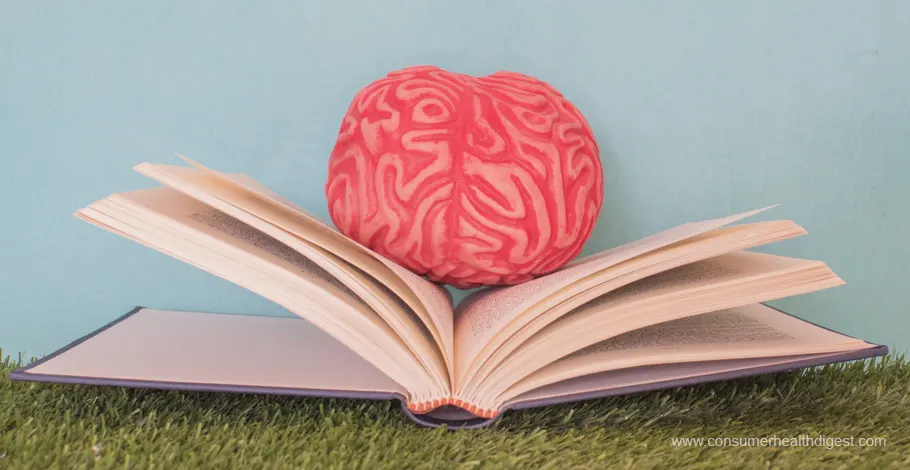Overview
We all know that reading has a lot of advantages, but did you also realize that reading can help to develop and improve your brain? It’s true that reading is equivalent to a natural brain workout and has numerous favorable effects on mental health.

Unlike watching TV or using social media, reading works numerous brain regions simultaneously, giving your brain a full workout. It’s an exercise that stimulates the mind and can greatly enhance brain function.
So How Much Should You Read?
Research shows you can experience many of these cognitive benefits from reading as little as 30 minutes to an hour per day. But more is often better when it comes to keeping your brain fit. [1]
The key thing is making reading a consistent habit and choosing material that thoroughly engages your brain.
As per the study of Dr. Carolina Estevez, clinical psychologist, when you read, you’re exercising your comprehension, memory, and even empathy, particularly when you dive into fiction. Fiction exposes you to diverse perspectives and emotional experiences, helping you improve your theory of mind and the ability to understand others’ thoughts and feelings. Reading even can strengthen the brain’s neural networks, which can enhance your ability to focus and solve problems. Think of it as a workout for your mind: the more you read, the stronger those mental muscles become.
Reading works of non-fiction and fiction that present novel concepts or viewpoints will stimulate your mind. There are undoubtedly advantages to articles, short tales, audiobooks, and e-readers as well. However, immerse yourself as much as you can in a longer book for a mental workout.
It’s a fantastic, enjoyable, and cost-free method of increasing mental capacity that everyone can use. Now open a book, engage in mental exercise, and watch as reading transforms and fortifies your incredible brain!
Ways in Which Reading Can Boost Brain Power

Boost Memory and Increase Brain Power Shutterstock Image
Here are the key ways reading can supercharge your brain and keep your mind sharp:
Grows New Brain Cells
Reading involves more than merely absorbing the text on a page. Your brain is constantly sprouting new brain cells and developing new neural pathways. Your brain may literally get bigger and denser as a result of this gray matter expansion.
Brain scans were performed on research participants both before and after they read the identical book. Within days of immersing oneself in the book, there were remarkable increases in connectivity in the brain regions related to language, movement, and sensation.
Reading books is one of the many novel experiences and hobbies that have the amazing ability to change the structure of the brain. Reading novels improves the brain over time by creating new neural connections.
Improves Focus & Concentration
One of the few pastimes that allows your brain to concentrate on a single task for a prolonged period of time in this day and age of constant distractions and digital overload is reading. Devoting all of your attention to a book gives your brain a mental workout that may improve concentration.
In a research project, scientists discovered that immersing oneself in a novel improved connectivity in brain regions related to sustained attention. [2]
The ability to ignore distractions and stay focused was noticeably better after reading a book.
By making your brain focus for extended periods, reading trains your brain to have better focus and concentration even when you aren’t reading a book.
Reduces Stress & Anxiety
While it requires active mental engagement, reading has also been found to put your brain in a pleasurable trance-like state, similar to meditation. This allows tensions to melt away, slowing your heart rate and easing muscle tension.
Multiple studies have shown that reading lowers levels of stress decreases heart rate and muscle tension, and reduces anxiety and depressive symptoms. In one study, participants’ stress levels were reduced by nearly 60% by reading silently for just six minutes! [3]
Therefore, put down your phone and pick up a book if you’re feeling worried, pressured, or overwhelmed. You can calm your body and mind by reading to elicit your relaxation response.
Increases Empathy & Social Skills
You may fully immerse yourself in other people’s ideas and emotions, especially when it comes to fiction. When you picture the emotions, people, and events in a novel, you can see and feel the world through the eyes of someone else.
Stimulating the part of the brain that enables you to consider other perspectives and put yourself in other people’s shoes, enhances empathy. Your ability to conceptualize events may enhance your emotional and social intelligence.
Thus, while fiction may seem like entertainment or a way to escape, your brain is actively attempting to create new insights into the human condition.
Improves Sleep Quality

Good Sleep Improves Your Brain Performance, Mood, and Health. Shutterstock Image
With our constantly buzzing screens and hectic lifestyles, sleep quality is more important than ever for cognitive health. Reading an actual printed book or e-reader before bed has been shown to allow you to fall asleep faster and sleep better.
The hormone that regulates sleep-wake cycles, melatonin, is not suppressed when reading books in print or on e-readers, unlike backlit screens from TVs, iPads, or phones. The blue light that flickers on displays deceive your brain into remaining awake.
Additionally, reading a relaxing book might help you relax and de-stress so you can get a good night’s sleep. Reading a “real” book before bed improves sleep quality and the following day’s focus and memory.
Builds Vocabulary & Communication Skills
Reading requires continuous symbol-to-language decoding. This helps you learn new vocabulary words and bolsters the parts of your brain related to language processing.
You may come across words that are not used in regular conversation if you read them regularly.
The more words you understand and can use, the more precisely you’ll be able to communicate.
Strong reading skills are associated with strong written and verbal abilities – as well as better performance in academic and professional settings. The richer your vocabulary from reading, the easier it will be to articulate your thoughts and ideas.
Conclusion
In summary, reading provides numerous cognitive benefits beyond the immediate enjoyment of stories. Reading has many profound benefits, such as increasing your vocabulary, enhancing your communication skills, and preserving mental clarity.
Reading even a little bit each day can help you engage in mental activity that is both enjoyable and beneficial. Remember that obtaining these benefits requires choosing difficult and captivating content.
Reading is a generally accessible and powerful tool for personal development, not just a pleasurable pastime. Develop the practice of reading and see how it alters your perspective, one page at a time.
Was this article helpful?
3 Sources
We review published medical research in respected scientific journals to arrive at our conclusions about a product or health topic. This ensures the highest standard of scientific accuracy.
[1] Bavishi A, Slade M, Levy B. THE SURVIVAL ADVANTAGE OF READING BOOKS. Innov Aging. 2017 Jun 30;1(Suppl 1):477. doi: 10.1093/geroni/igx004.1696. PMCID: PMC6245064.[2] Berns GS, Blaine K, Prietula MJ, Pye BE. Short- and long-term effects of a novel on connectivity in the brain. Brain Connect. 2013;3(6):590-600. doi: 10.1089/brain.2013.0166. Epub 2013 Oct 9. PMID: 23988110; PMCID: PMC3868356.
[3] "Taking Charge of Your Health & Wellbeing." Taking Charge of Your Wellbeing, 4 Apr. 2024, www.takingcharge.csh.umn.edu/reading-stress-relief.








 This article changed my life!
This article changed my life! This article was informative.
This article was informative. I have a medical question.
I have a medical question.
 This article contains incorrect information.
This article contains incorrect information. This article doesn’t have the information I’m looking for.
This article doesn’t have the information I’m looking for.